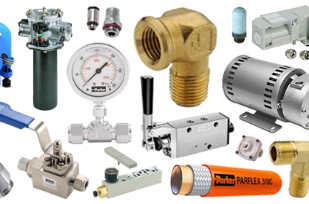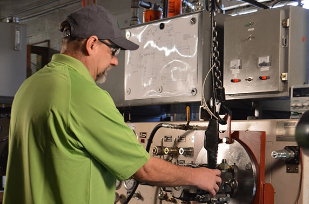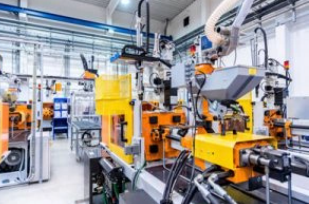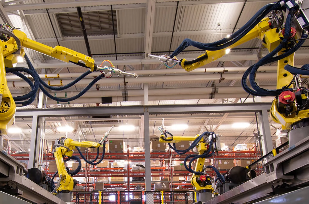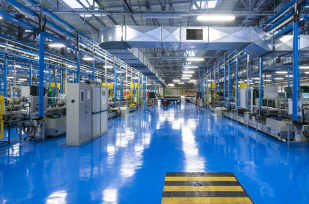Even in cars, fuel contamination is a problem. In Australia, for example, car owners saw upwards of $20,000 worth of repair costs per car due to contaminated fuel sources.
Every machine in your operation is more valuable than the machine itself. If it goes into the shop for repairs, you’re not just incurring repair costs but operational costs as well.
You need to be re-circulating your fuel and filtering it if you want your systems to run smoothly. Here’s a quick guide to the benefits of using mobile fuel filters for your mobile fuel tanks.
Let’s Talk About Fuel Best Practices
Before we get down to the why’s and how’s of filters, let’s talk about how to handle the fuel itself. Here are some best practices for fuel handling.
Engines Are More Advanced
Contemporary engines include electronically-controlled fuel injection systems. The engine components are more advanced to minimize environmental impact and increase performance.
They operate at high pressure and have small tolerances. And the problems you see with these engines happen because of poor fuel quality and fuel contamination.
If you see symptoms like ignition difficulties, irregular exhaust gas temperatures, and reduced engine output, the culprit is likely the fuel.
One of the major causes of fuel contamination is poor breather and filtration systems on mobile fuel systems. Often this leads to rust, dirt, moist air, algae, or sludge accumulating.
Purchase From Well-Known Suppliers
Don’t buy from the regular Joe down the street who isn’t connected to a larger fueling company. He might not be caring for his fuel as well as you think.
Use Breather Filters With Air Dryers
When you use the proper breather filters and air dryers, you’ll prevent dust and moisture from entering the tanks. Particle contamination filters are a good idea too. Combine these with dedicated water separators on the outlet of the tank and you’ll have water-free fuel.
Clean and Drain Tanks for Sludge
Regularly check for sludge in your tank. Also, check for rust. Be sure to install any fuel tanks at an angle.
Keeping your tanks at an angle with the drain plug toward the ground will allow debris and sludge to settle near the plug. You can easily remove these contaminants.
Keep Fuel Nozzle Clean
Always wipe down the fuel pump nozzle before you pour your fuel. At this point, you should check your connectors and hoses for leaks. This will prevent dust accumulation and clutter.
Lock It Up
This is a rare occurrence, but it’s still a good idea to lock up your fuel. If you run a farm and some meddling neighbor kid comes and puts rocks in your fuel tank, that’s going to be your fault for not locking up the tank.
Even if someone comes along, opens the cap and then improperly replaces it, you could end up with contamination. Secure your fuel just in case.
Never Store Half Empty
If your system is sealed and properly filtered, this shouldn’t be a problem. But why risk it? To lower your risk of condensation and water formation, be sure your tank is completely full if you’re going to store it for a time.
Sometimes Best Practices Aren’t Enough
It sometimes doesn’t matter how diligent you are in your care of the fuel, tank, and machine. You will still end up with some contaminated gas at some point.
This can happen due to compromise in the fuel manufacturing process. Processing, prolonged storage, refining, and even transport and delivery can cause contamination.
Fuels used in most industries are organic. This includes biodiesel. By their nature, they’re prone to biological growth.
These fuels degrade over time. They grow contaminants such as sludge float and algae. These clog lines and filters and cause corrosion.
What are the Benefits of Mobile Fuel Filters For Mobile Fuel Tanks?
Installing fuel filtration and conditioning systems will save you considerable money and pain down the road. Early filtration is the solution.
Ensure Fuel Integrity
When you implement a filter system, you’re ensuring fuel integrity. Fuel filtration systems should be able to catch particles down to 3-5 microns. They should be able to do this while allowing enough fuel flow to the engine.
Protect Other Components
Filter systems will protect other components in your system. It’s not just the fuel or the engine you’re protecting. Anything the fuel touches could degrade if you don’t filter your fuel.
This includes fuel injectors and fuel valves. These parts are expensive to replace.
Fewer Additives
If you don’t filter your fuel, you might need to add expensive and corrosive additives to your fuel. Of course, some additives are necessary and good. You want to avoid needing additives meant to break down and eliminate contaminants.
Prolongs Engine Life
Sediment builds up in engines when you feed them contaminated fuels. Your engine will appreciate a filter on the fuel tank. You’ll notice equipment lasts longer when you feed it uncontaminated fuel.
Meet Fuel Standards
In 2011, new diesel regulations came into effect. The EPA began mandating new diesel engine exhaust standards. And the standards applied to old equipment as well as new equipment.
It was called the Tier 4 rule and it affected diesel engines 175 horsepower and higher. The next year that decreased to 75 horsepower and above.
While regulations fluctuate from ruling party to ruling party, there will always be regulations and standards to follow. Feeding your engine clean fuel directly affects the emissions. If you keep your fuel filtered, it will be easier to meet EPA standards.
RACOR Mobile Fuel Filters are your Best Bet
Adding Racor mobile fuel filters to your mobile fuel tanks will ensure your fuel is clean and your equipment runs efficiently. Don’t get caught out in the field with poor fuel quality.
If this information was helpful, check out more on our blog.

